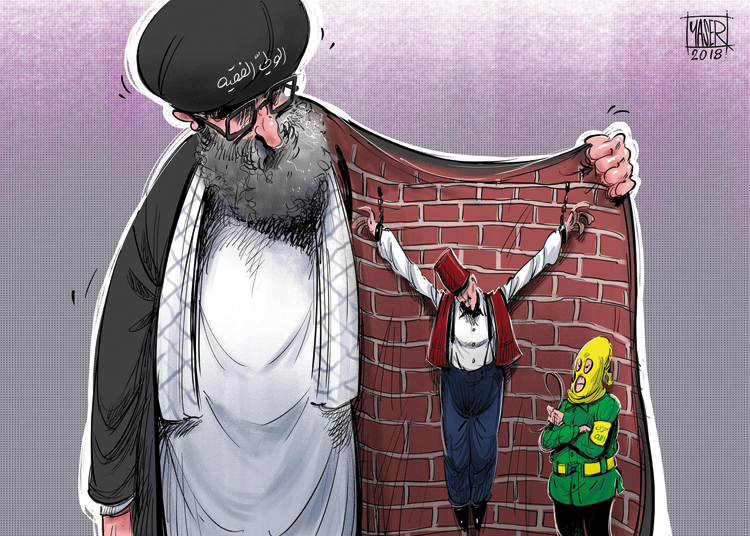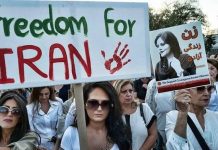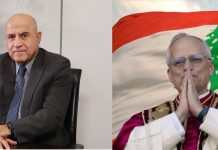Hezbollah’s tunnels are part of Iran’s strategy
كايل اورتون: انفاق حزب الله هي جزء من استراتيجية إيران
Kyle Orton/The Arab Weekly/December 10/18
No matter how embarrassed it is, the United Nations will not control Hezbollah, nor will the Lebanese government.
Israel announced an operation to “destroy the threat of the terror tunnels” into northern Israel from Hezbollah, the Levantine branch of Iran’s Islamic Revolutionary Guard Corps (IRGC) in southern Lebanon.
Unlike the usual international outcry against Israeli operations, much of the opposition this time came from within Israel, where opponents of Israeli Prime Minister Binyamin Netanyahu question its timing and intent.
Israeli police recommended — for the third time this year — that Netanyahu and his wife, Sara, be prosecuted for corruption and efforts to disrupt the investigation into allegations against them. While Netanyahu might survive an indictment from Case 4000, the revelations caused political problems that might collapse the government.
When the anti-tunnel operation, dubbed “Northern Shield,” began two days after the police announcement, there were claims Netanyahu was using it to divert attention from the corruption allegations ahead of elections next year.
That stories of Hezbollah tunnelling into Israel had been circulating in the media for four years compounds suspicion about the operation’s timing, as does the public statement that Northern Shield had been planned for 18 months and that none of the tunnels were close to operational.
Yaakov Lappin, a research associate at the Begin-Sadat Centre for Strategic Studies (BESA), said: “The components that made this operation possible have taken years to mature,” from developing technology to detect and destroy the tunnels in Gaza, to adapting it from that soft sand terrain to the hard rock in the north. It also took time to gather intelligence.
“These processes are the deciding and primary factor in the timing,” Lappin said, adding that “attempts to link it to political interests are not based in reality.”
Efraim Inbar, a BESA fellow and political science professor at Bar-Ilan University was more blunt, saying the idea that the operation had been timed for political purposes was “nonsense.”
Iran’s use of Hezbollah and other foreign IRGC-controlled Shia militias to rescue Bashar Assad’s regime in Syria has been an obvious threat to Israel for years. There was speculation in May that an Israel-Iran war was in the offing. The situation was defused but US and Israeli failure to prevent the fall of Daraa in southern Syria, on Israel’s border, in July left Iran with a contiguous two-front foothold against Israel.
Raising the question: What are the two sides doing?
From the Israeli side, unlike in Syria, where Israel has conducted 200 air strikes in the last two years, “when it comes to Lebanon, Israel first employs media and public deterrence campaigns” to try to get Hezbollah and Iran to desist from “force buildup activities that threaten Israeli red lines,” Lappin said. It is if this fails that “the possibility of pre-emptive action rises considerably.”
Amos Yadlin, a former Israeli Air Force general and currently executive director of Tel Aviv University’s Institute for National Security Studies, agreed about Israeli strategic messaging. In this case, as Yadlin wrote on Twitter, there were two audiences: Hezbollah, publicising how thoroughly infiltrated the tunnels were and the dangers to them, and the United Nations, particularly the UN Interim Force In Lebanon (UNIFIL), mandated to keep the peace on the border.
The UNIFIL mission is a bad joke and its efforts to police UN Security Council Resolution 1701, which ended the last round of fighting between Hezbollah and Israel in 2006, have proven actively counterproductive. As Yadlin pointed out, UNIFIL routinely denies Israeli “allegations” that Hezbollah is violating Resolution 1701 but and is now faced with concrete proof that violations were occurring right under its feet.
No matter how embarrassed it is, the United Nations will not control Hezbollah, nor will the Lebanese government. “There is no Lebanese state,” said Inbar, “only Hezbollah-controlled Lebanon.”
Undoubtedly aware of this, it is possible that the Israelis are laying the political foundations — at home and abroad — for an intervention into Lebanon.
Michael Stephens, a research fellow at the Royal United Service Institute, was recently in Lebanon and said that while “people were worried… most didn’t feel Northern Shield was a prelude to a wider intervention.” Stephens said he had “the sense no one really wants this to escalate.”
“In Lebanon… Israel has refrained from taking known action for the past four years as part of what appears to be a quiet understanding with Hezbollah,” said Lappin. However, complex interactions and the possibility of a miscue means the situation is “unpredictable.”
Iran’s aim — the elimination of Israel — is not in question but it takes what Lappin called a “phased approach.” Through its proxies, arrayed on three of Israel’s borders (Gaza, Lebanon and Syria), Iran can fire missiles to demoralise the Israeli population and “undermine the country’s long-term viability,” said Lappin.
Hezbollah is likely to be given “the role of deterring Israel from striking Iranian nuclear sites.”
Inbar agreed with that stance almost entirely: “The Iranian strategy is one of attrition against Israel, plus the creation of a deterrent against Israeli attack on nuclear installations,” he said.
There had been hope that Russia would avert the need for Israel to act in a major way by restraining Iran in Syria. The longer record makes it doubtful Israel’s deliverance will come from the Kremlin, as does the current strategic situation.
“The Russians know Assad needs boots on the ground to survive,” said Inbar, “and Moscow is unwilling to supply them, so it must rely on Iran. Russia won’t push Iran out [of Syria] anytime soon.”
The question is how much longer Israel’s fate in the Levant will be in its own hands and if it will act in time.
*Kyle Orton is a Middle East analyst. Follow him on Twitter @KyleWOrton






















